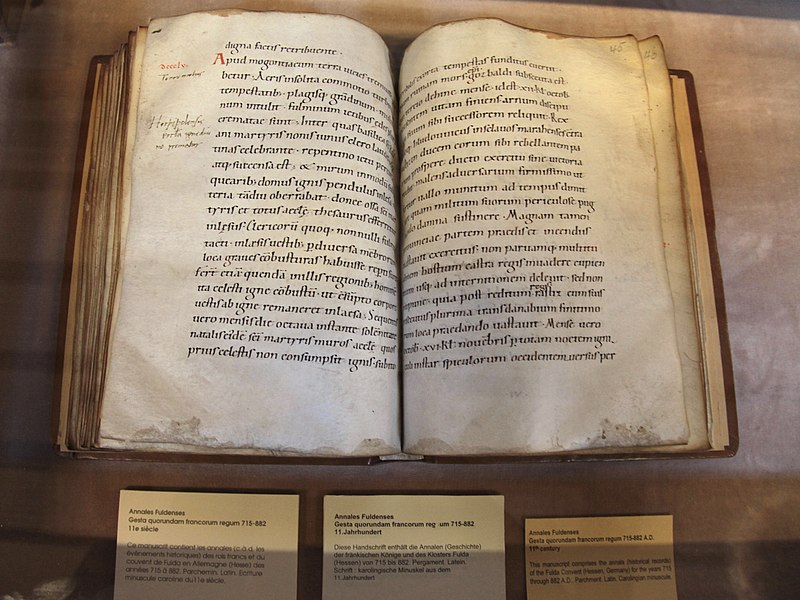So, I'm still working my way through the Annals of St Bertin, having finished reading the Annals of Fulda. Something I think that is worth nothing is the construction of some of the names, which both fascinates and amuses me.
(Here I must make a note from the modern world. If you are old enough, you might remember a clothing line for children called Garanimals. Basically, they were clothes- trousers, shirts, etc- that were coordinated so that they would mix and match, one shirt could be worn with several different trousers, etc, and still be coordinating, with matching colors and patterns, etc. Well, I've found that Frankish (and some Anglo-Saxon) names follow similar patterns. So keep that in mind.)
Names in the 6th through 10th c in particular, tend to be assembled from somewhat interchangeable parts- prefixes and suffixes and such, usually in two sections, so they are frequently interrelated, at least in a meaning sort of way.
An example: Liutgard (which can be rendered in different spellings, as Hlutgard/e, Lutgard/e, Liutgard/e, Luitgard/e, etc) has the sections Liut- and -gard. You'll also find Liutberga, or Hildegard, Ermengard, etc.There's also Gertrud, Hiltrude, Ermentrude, etc etc etc. And men's names follow similar patterns.
(As an aside, when I chose the name Liutgard, I'd come down to my final choice between Liutgard and Liutberga, which I also really like. But, being cautious, I decided to run them up the proverbial flagpole first. My then significant other, who works with 11-14 year olds on a daily basis, was the test. So I asked him, what would the kids do to those names, so I'd know what to avoid. He replied immediately with "Would you want to be called Liut-burger?" Ah. Nope. So Liutgard was it! Interestingly, I later found out that Liutgard means 'Guardian of the Hearth/Home' which fits me all too well. So I'm happy with my choice.)
All of this of course means that there's a LOT of choices that can be made when looking at names, for these construction bits as well as spelling. (I like to sign in to meetings or events with the Latinized form 'Lutgardis', of Hlutgarde, etc., just to be a pain :-D ) These constructed bits also make documenting names to be easier at times, when one can demonstrate the variables.
Having grown up with brothers with similar names (and the dog had one too), I have to wonder about parents who would name their sons Bertrand, Bertulf, Bertmund, etc. Were they really short on ideas? Or did they simply want to make it easy to monogramme things?
